Humanitarian settings
Humanitarian settings
Emergency situations put young girls at an increased risk of unintended pregnancy, sexually transmitted infections (including HIV), maternal death and illness. Furthermore, the risk of sexual and gender-based violence, including rape, and child, early and forced marriages, increases as well. Access to sexual and reproductive health services that provide contraception is often disrupted in emergency settings.
Interruption of normal (but often already stretched) services and enormous new needs for health care accentuate the risk that pregnant girls will not receive skilled attendance at birth and that young mothers will not be able to provide adequate care for themselves and their newborn baby.
This is the story of Amira, Ahmed, Samer & Amal
Amira is 15 years old, Ahmed is 24, Samer is 1 & Amal is 12 days old
Amira lives with her two children and her husband in a refugee camp in Jordan. She had to stop attending school because of the war in her country. Amira got married at 13 and has two children who were born at the maternity clinic in the camp.
It’s so hard to take care of a child when you’re a child yourself. For example, I’m not sure if I should be carrying my children all the time. Plus, I have to take care my husband too. I don’t have any free time for myself. My children take up much more time than all the housekeeping. My newborn baby cries a lot. Sometimes, I don’t know why he’s crying. He just does.
When I first got pregnant, I felt tired but I was happy, too. I thought I’d have a baby who would entertain me and fill up my free time. Now with two children, I don’t get any rest at all.
My husband and I had some problems in the beginning. But after I gave birth to my first child, he started to help me and understand me more.
My body isn’t the same as it was before. I often feel tired. No matter what I do, my body feels so weak and powerless. My family who lives nearby helps with my eldest son, but not with my youngest.
Thank God, my children are doing fine. They can get sick but it’s normal because they get well again. My eldest son does so many funny things. I like to play with him because then I feel like a child, too. When we play, I feel like he’s my friend.
I studied in primary school. I left school only because of the situation in my home country. I want to study again in the future. I’d like to be a teacher.
I don’t want any more children now. It’s enough. I have two and I should take care of them. I want to use contraception in the future. It’s easy to get but I didn’t know this before.
I want to give my children all the things I wasn’t able to have. For example: toys, a house and an education. I hope they’ll have a comfortable life.
For a long time, I’ve felt the need to speak about things. But I have no one to talk to. I feel alone here. There are things I can’t change, like living in this camp. Life is hard here.
Nothing is normal. You don’t visit anyone and no one visits you. You just take care of your children and your husband all the time. That’s it.

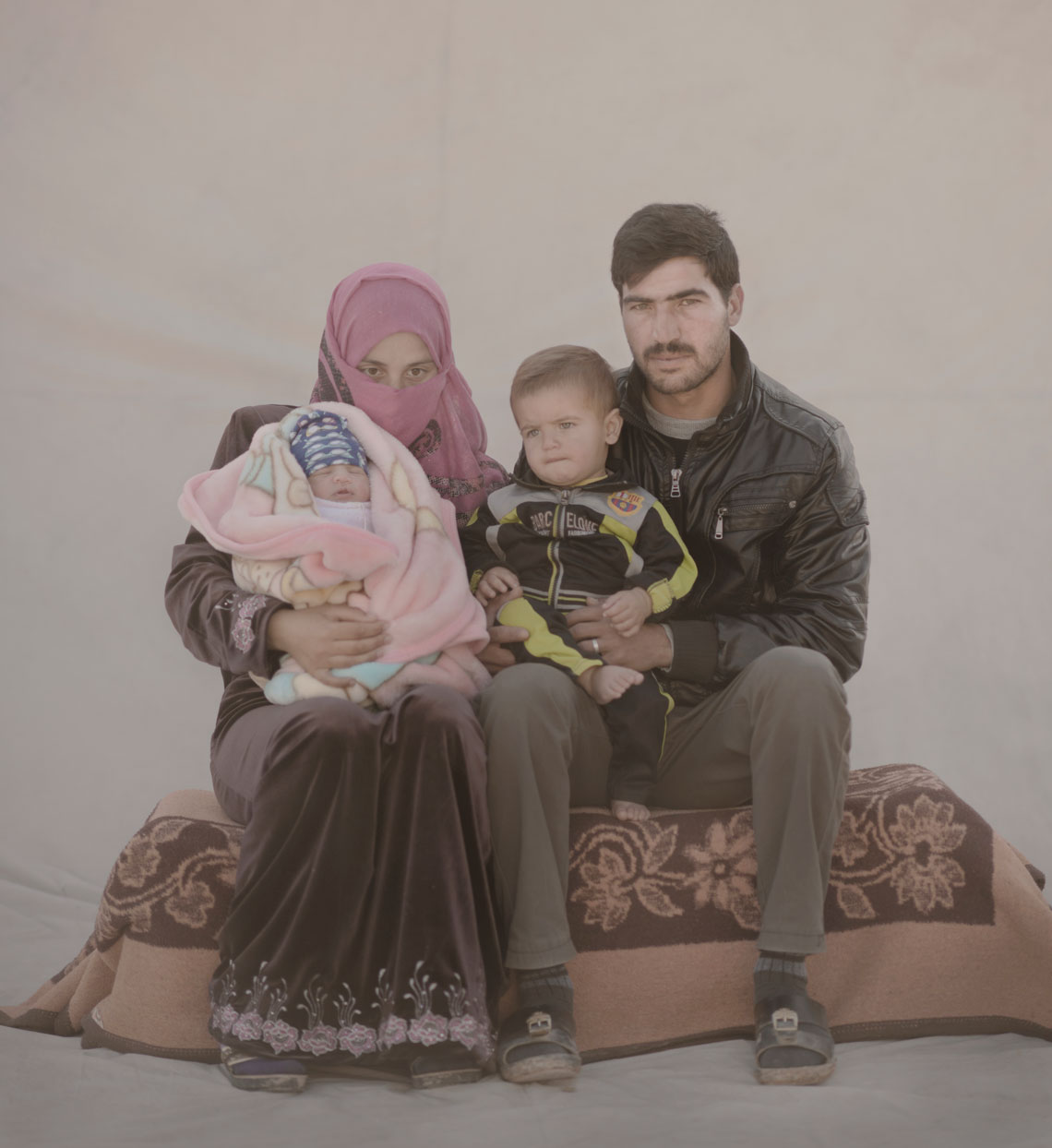

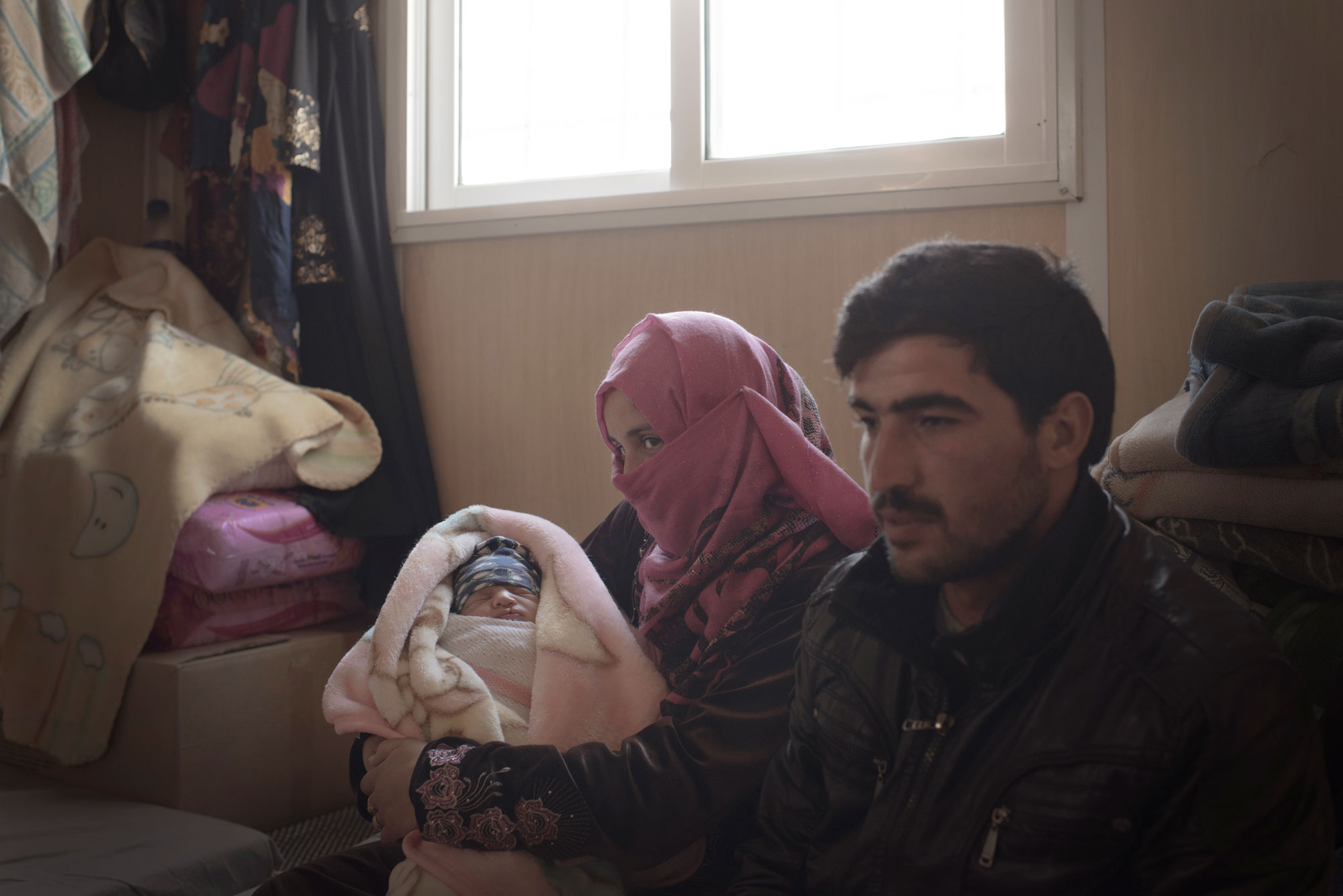

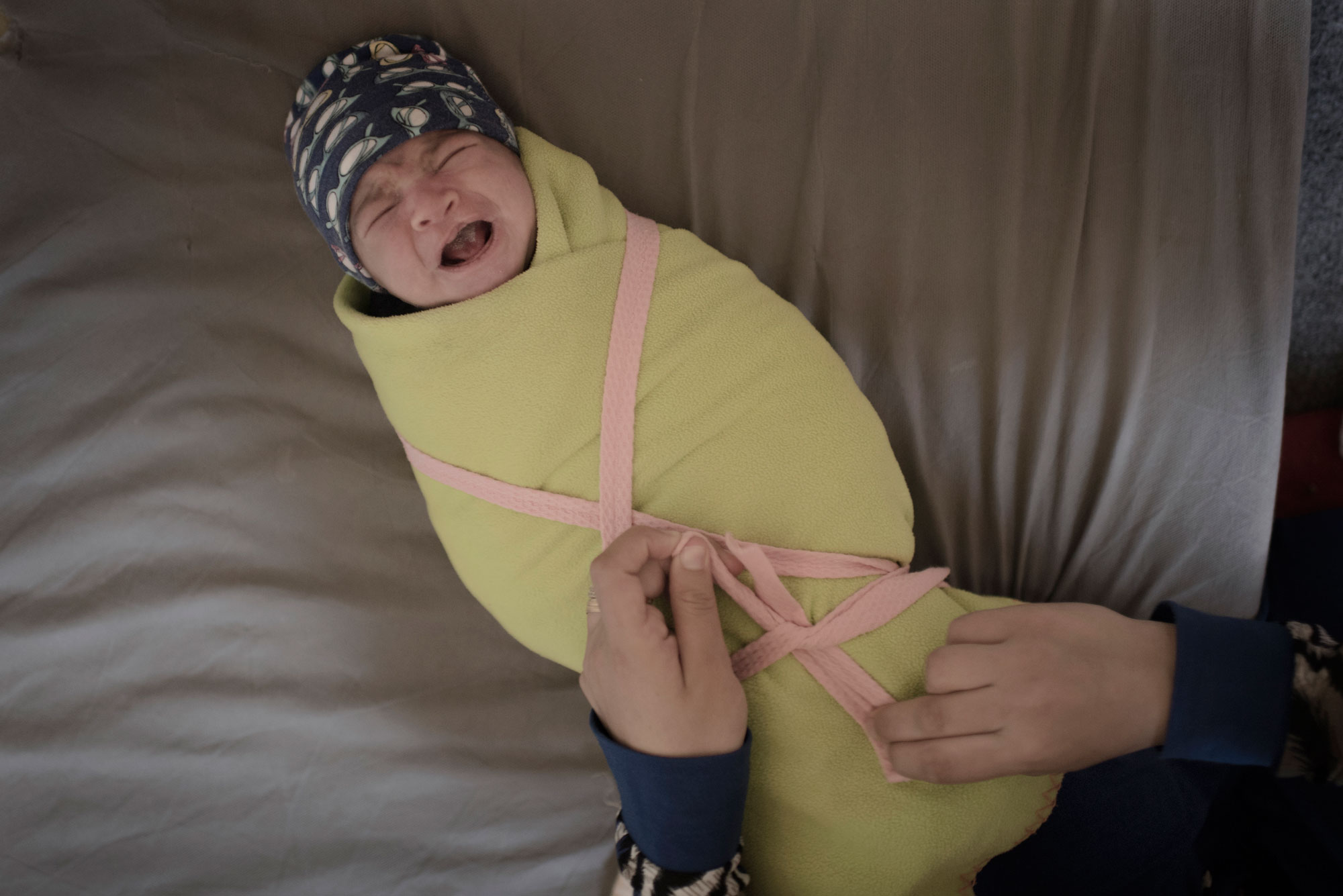

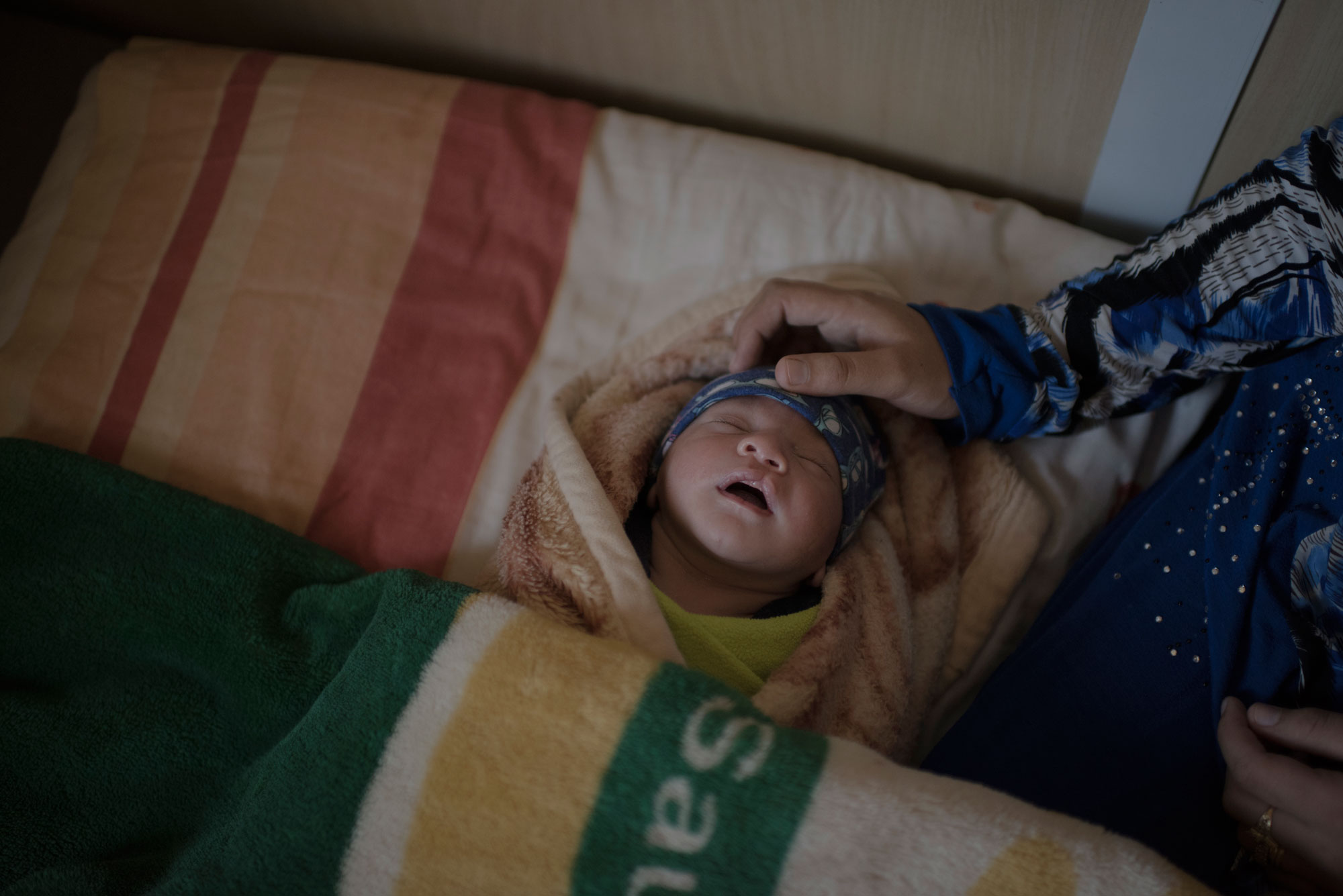

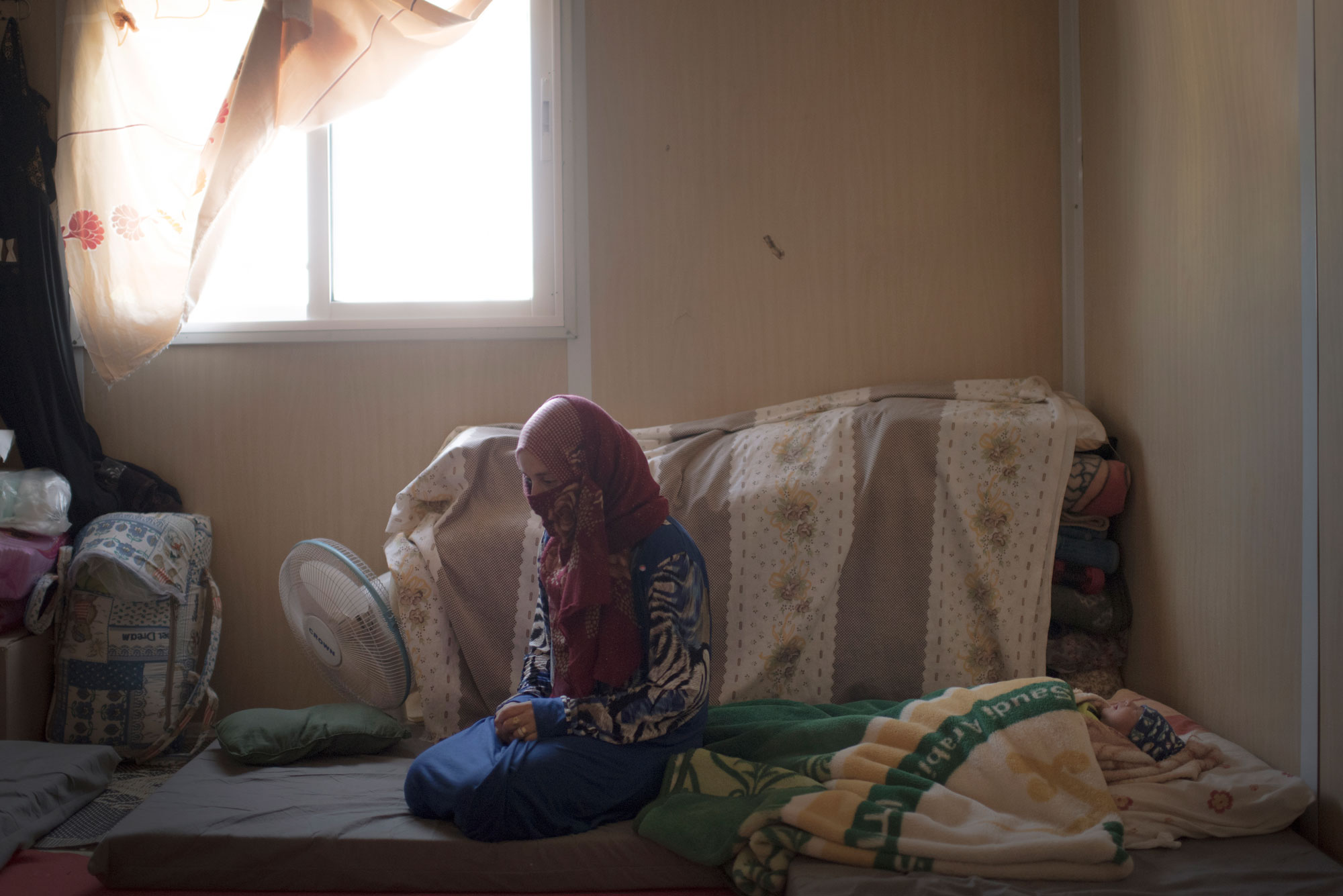

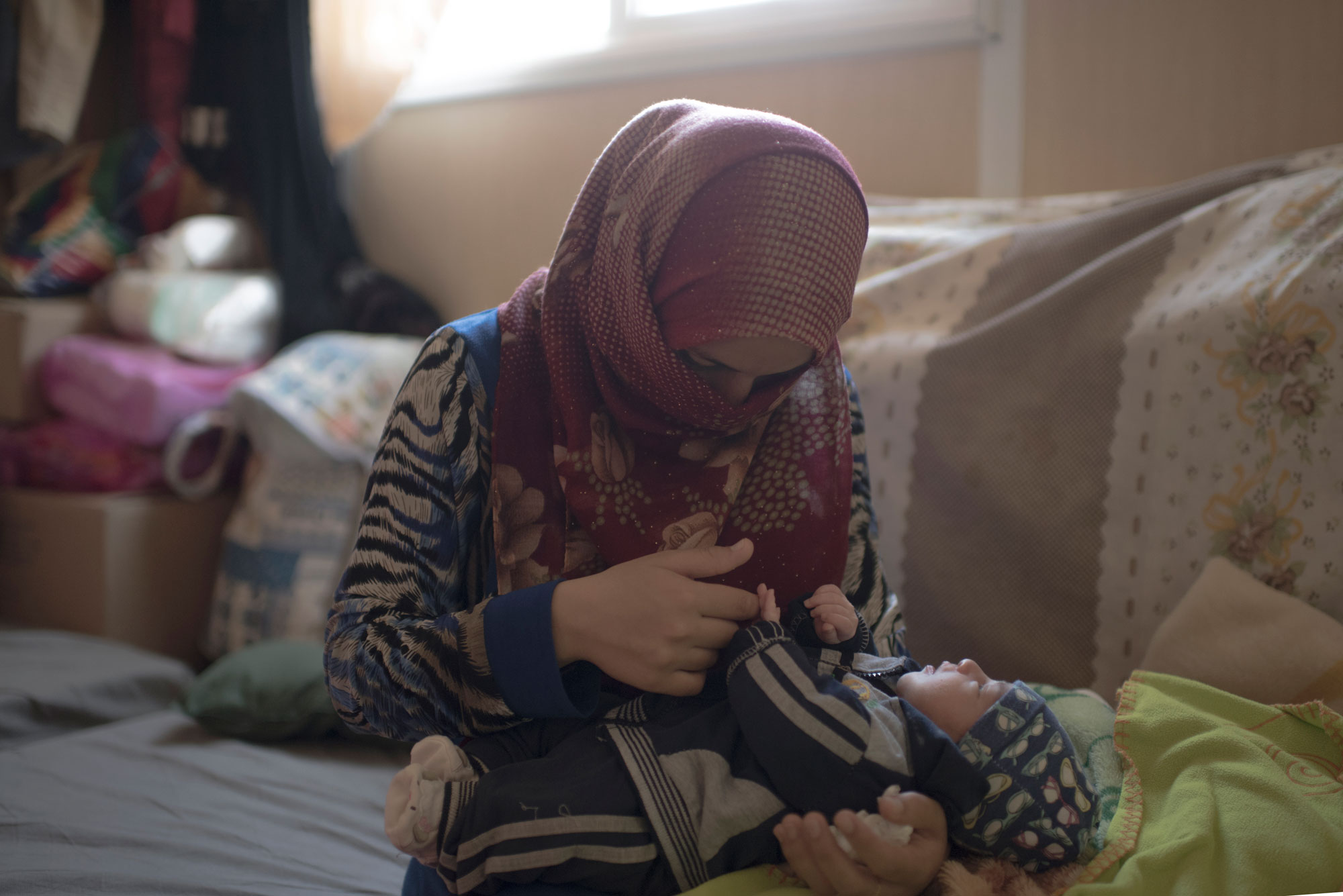
“It's so difficult to take care of a child when you are a child yourself. I have to take care of my children and my husband at the same time.”